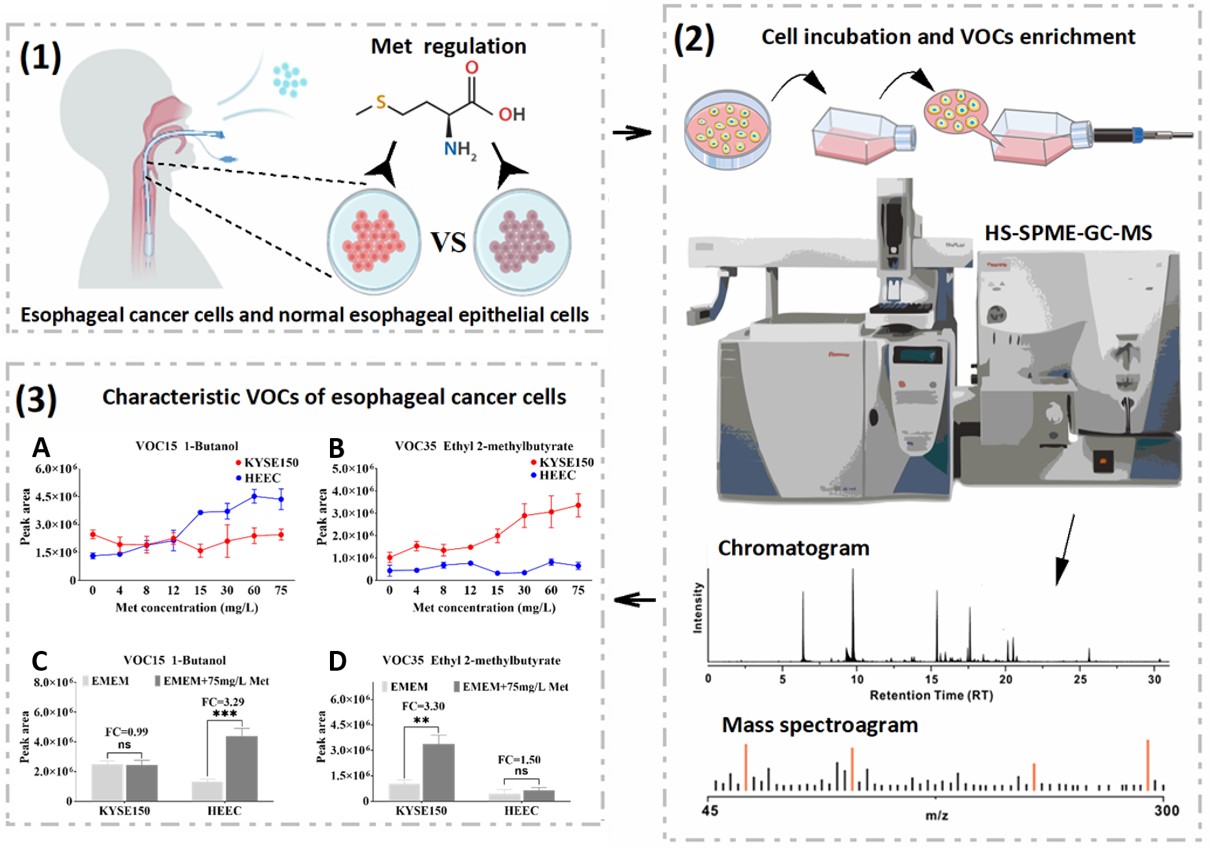
Recently, a research team led by Prof. CHU Yannan from the Hefei Institutes of Physical Science of the Chinese Academy of Sciences adopted methionine regulation strategy and found that esophageal cancer cells can be identified by two volatile organic compounds (VOCs) with the help of untargeted analysis by gas chromatography-mass spectrometry (GC-MS).
The study was published in the Journal of Proteome Research.
Esophageal cancer usually has a poor prognosis. However, if detected and treated early, the five-year survival rate can be significantly improved.
Breath tests are safe, non-invasive, and well-accepted, making them a promising method for screening esophageal cancer. However, specific VOC markers in the breath for detecting esophageal cancer have not yet been conclusively identified. Therefore, conducting cell experiments will help advance research on breath markers for esophageal cancer.
In this study, researchers used a special technique called HS-SPME-GC-MS to investigate the smells given off by esophageal cancer cells (KYSE150) and normal esophageal cells (HEECs). They focused on methionine (Met), which was known to influence cancer development.
"We looked at how different levels of Met affected these smells," said post doctor GE Dianlong, a member of the team.
By growing the cancer and normal cells under different Met concentrations, the researchers discovered that the levels of two specific substances, 1-butanol and ethyl 2-methylbutyrate, varied between the two cell types. These differences became more pronounced with higher Met levels. This finding suggested that these two substances can be used as markers to distinguish esophageal cancer cells from normal cells.
This new method helps regulate the characteristic VOCs of esophageal cancer induced by methionine, providing a new idea for the identification of cancer cells.

Schematic diagram of esophageal cancer cell identification research process. (Image by GE Dianlong)

86-10-68597521 (day)
86-10-68597289 (night)

52 Sanlihe Rd., Xicheng District,
Beijing, China (100864)

